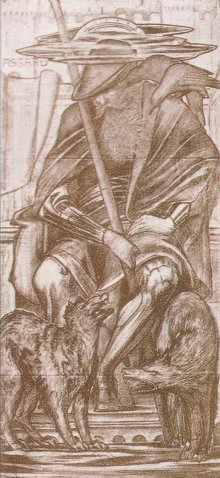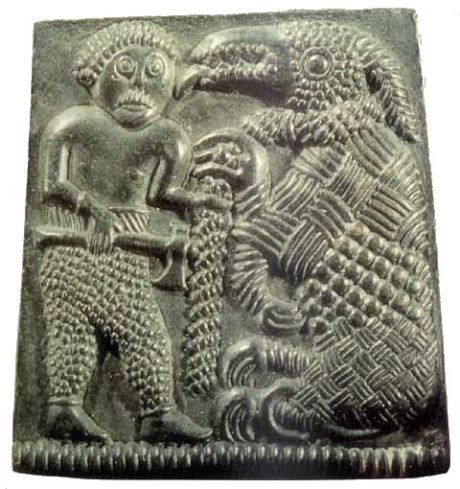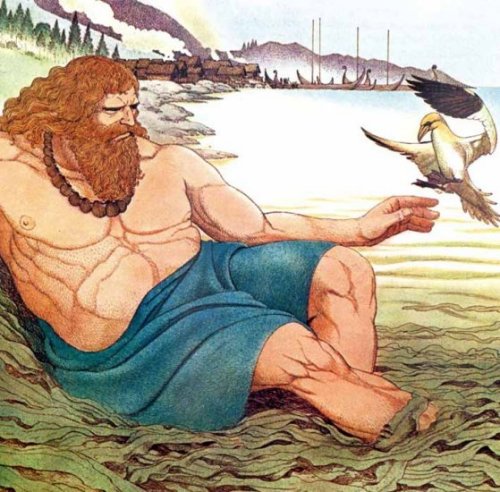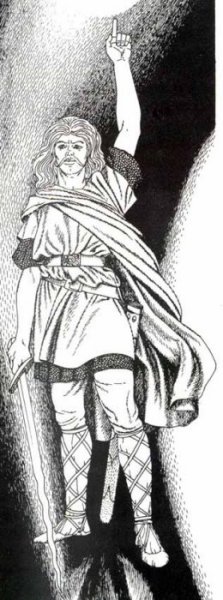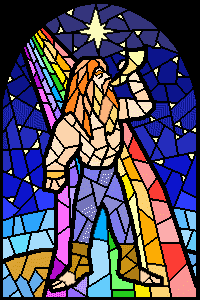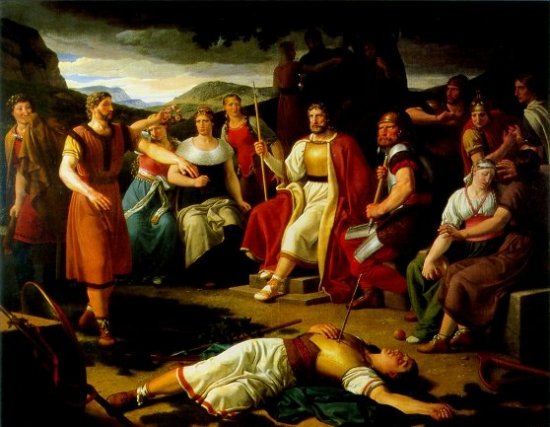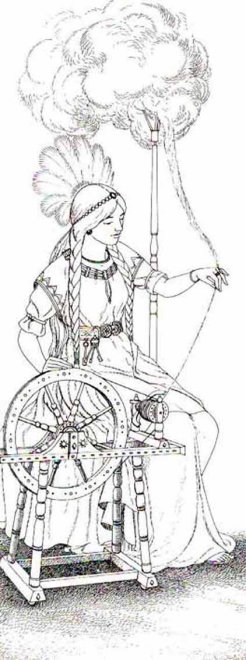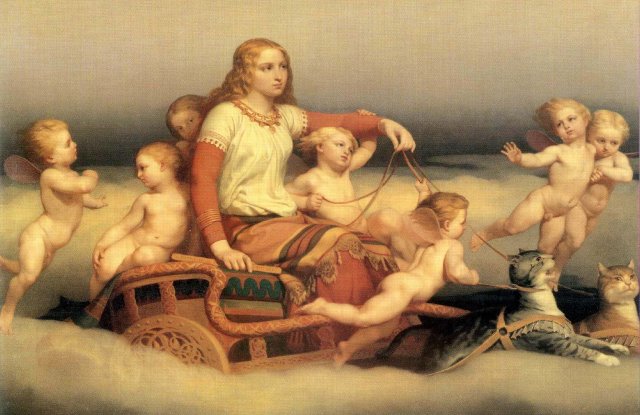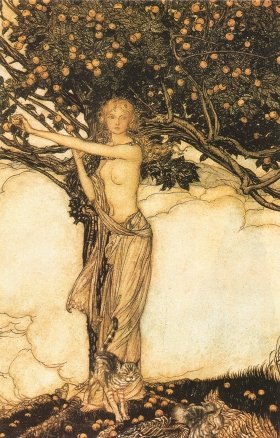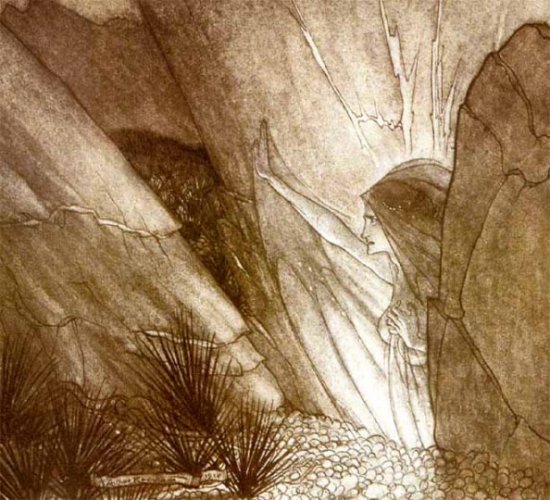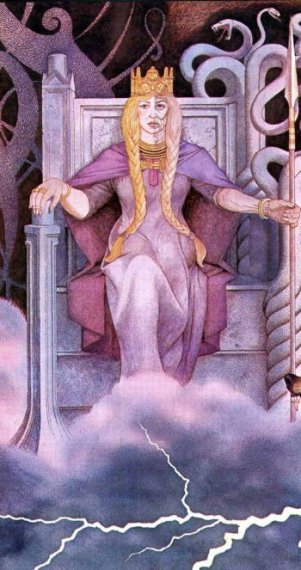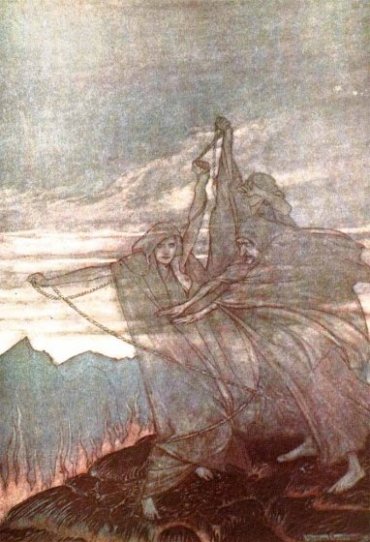Aesir
The Aesir (Æsir in Old Norse) were one race of gods that resided in Asgard. Their counterpart and one-time enemies whom they warred upon were the Vanir. The Vanir were more deities of nature and fertility, whereas the Aesir were more warlike than their rivals. When the two warring races, Aesir and Vanir, made peace, the Vanir deities such as Njörd (Njord), Frey and Freyr became Aesir. (See War of Aesir and Vanir for more detail.)
Only four of the Aesir deities were common to other Germanic tribes: Odin (Wodan), Frigg, Thor (Donar) and Tyr (Tiw or Tiwaz). See Teutonic Deities.
An As is the singular name for the Aesir. The female As were called an Asynia (pl. Asynior or Asyniur). Note that I have now redesigned this page to separate the Aesir from the Asyniur (female Aesir).
It should be noted that Snorri Sturluson (1179-1241), the Icelandic writer who wrote the Prose Edda, made an interesting comparison with the Aesir gods to the people in Asia, particularly to the Trojan royal family. Snorri wrote that the Aesir had come from Asia and he compared Ragnarok with the Fall of Troy, so Snorri is saying that Asgard, home of the gods, was also called Troy. Several of the gods were identified with the Trojan and Greek heroes. Snorri wrote that Thor was once called Hector, Ali (Vali) was Helenus, and Vidar was Aeneas, while Loki was compared to the devious trickster Ulysses (Odysseus).

Aesir
Chief Aesir
Minor Aesir
For Mani, see Sol and Moon
Asyniur
Other Asyniur
The following Asyniur were mentioned by Snorri Sturluson in the Prose Edda. Not much else is known about these goddesses.
Gerd
A mountain giantess who married Freyr. known for her great beauty. For more detail, see Giants, Gerd.
Saga
Not much is known about Saga except that she dwelt in a large hall called Sokkvabekk. She might have been the goddess of prophecy.
Eir
Eir was the goddess of healing, and patroness of physicians.
Siofn
Siofn or Sjofn was the goddess of love or affection. Her name means siafni – "affection".
Lofn
Lofn was the goddess of union or agreement between man and woman (engagement?).
Var
Var was another goddess of agreement, as well as answering the prayer of private oaths.
Vor
Vor was possibly the goddess of intelligence or wisdom, as well as of omniscience.
Syn
Syn was the goddess of doors to a meeting hall. She was supposed to prevent intruders from disrupting an assembly by keeping the doors closed; therefore she was the goddess of denial.
Snotra
Snotra was another goddess of wisdom. Snotra was also the goddess of courtesy.
Hlin
Hlin was the goddess or attendant of Frigg, and her duty was to rescue anyone that Frigg wished to save. Hlin was also the goddess of refuge.
Gna
Gna was another assistant of Frigg, and was probably the messenger-goddess for Frigg. Gna owned a horse named Hofvarpnir that could travel across the sky or sea.
Bil
Bil was probably the same person who assisted Moon (Mani). She was the goddess of the waxing moon.
Non-Aesir Deities
Fact and Figures
Genealogy
Family Tree of Norse Deities and Giants
Related Pages
By Jimmy Joe
